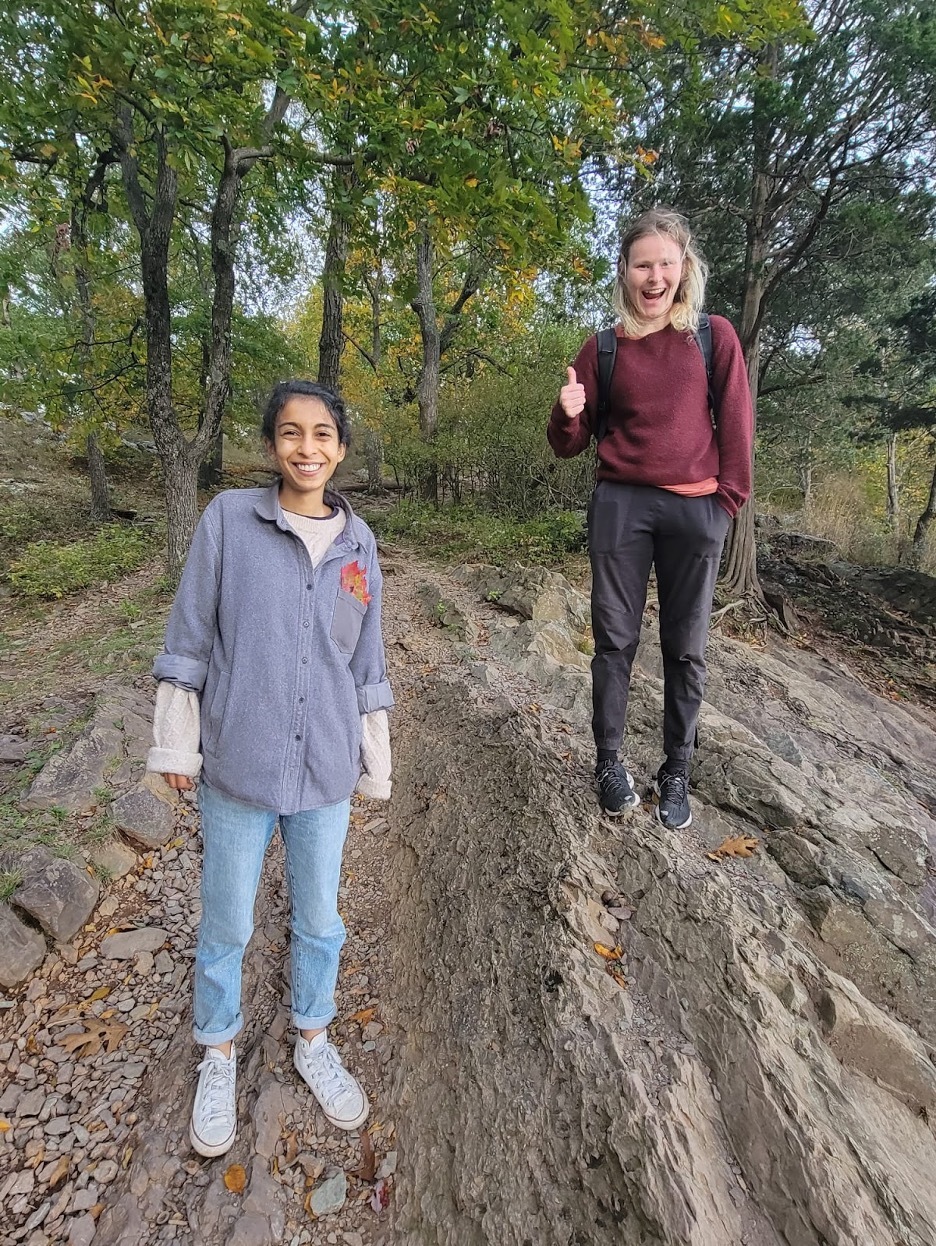Isha Shah is a Data Scientist at DrivenData and a second-year Master’s in Computer Science student at Columbia University. From December 2019 to December 2021, she was the project coordinator for the Columbia University’s Data Science Institute’s collaboration with the Rights CoLab. Previously she worked as a research analyst at the Brookings Institution’s Metropolitan Policy Program and Workforce of the Future initiative, where she applied econometrics and data science to policy research questions.
Rights CoLab: Back in 2019 when you applied for the Data for Good Scholars program, you prioritized our project, the Cost of Human Rights Violations, among many options. What interested you about it?
Isha: I worked as a research analyst in the Metropolitan Policy Program of the Brookings Institution for about three years before entering Columbia’s School of International and Public Affairs in Fall 2019, which is when the Cost of Human Rights Violations project was launching. As a public policy student, I missed working with data and knew that I would eventually want to return to a role that would be computation-focused, and the Data for Good program offered several opportunities to keep exercising and developing those skills. Of these, the Cost of Human Rights Violations program was by far the most exciting to me – I knew Joanne and Paul were domain experts in an area I had always been interested in, human rights and corporate accountability, and as a new project, it offered much more opportunity for thinking deeply about the domain and from there decide on the research methods and direction.
Rights CoLab: Did the project meet your expectations? Were there any surprises?
Isha: The project’s expansiveness and the number of stakeholders involved were suggested in the project description when I first applied, but I was surprised by seeing the open-mindedness, curiosity, and engagement from not only our project team, but the SASB team and the experts we consulted along the way. When joining the project, I did not expect to have such a close working relationship with Joanne or Paul, or to have the freedom to kick ideas around with fellow students and our stats advisors. I was also surprised by the number of viewpoints and people that were represented at our Expert Group meetings, and the variety of the other human rights, data science, and/or corporate accountability experts that we were able to have conversations with as we decided on our project direction.
Rights CoLab: How did the project evolve?
Isha: The project evolved from a greenfield exploration (i.e., “what methods can we use to show the financial impact of and investor interest in labor-related human rights practices?”) to a well-defined problem with specific methods and data sources (i.e., “what is the odds ratio for financially-material labor-related practices in industry X vs. industry Y?”). The project also evolved through our collective learning – we’ve had two project owners, two project coordinators, two research advisors, and over 20 students involved in this project over the past two and half years. I think every one of us has come away with a deeper understanding of how to think about the link between various investor-oriented data sources and labor rights.
Rights CoLab: What were the most challenging aspects?
Isha: The most challenging and rewarding part of the project was defining the methods and data sources we would use to show links and the relative strengths of relationships between financial impact/investor interest and labor practices in different industries. We’ve cycled through many approaches (unsupervised learning, supervised learning, and rule-based heuristics), and each brought us some level of insight. But it was (and continues to be) the crux of applied data science as a field (beyond even this project) to find the right methods, combined with the right data sources, responsibly analyzed to try to find insights that are truly actionable and relevant.
Rights CoLab: In your current job are you using any of the skills and experiences you gained from this project?
Isha: I am a Data Scientist at DrivenData, a social enterprise that runs data science competitions and works with clients on projects that promote social good. The skills and experiences I’ve gained from the Cost of Human Rights Violations project have been invaluable! I think the project scoping skills and the ability to communicate to a variety of audiences helped prepare me for a career that requires both practicing and interpreting data science work. In a more general sense, it was heartening to see how the team was able to translate the open-endedness of the Cost of Human Rights Violations at its start to specific, cogent, audience-targeted findings. Most data science projects that start from a more research-oriented place like this one take a while to settle on data sources and methods and to produce results. It can be helpful to remember during the high-ambiguity research phase that tangible outcomes are on the horizon.
On April 5, Isha and Raiha Khan presented on the Rights CoLab project at Truvalue Labs’ Academic Roundtable on ESG research under the title, “Using Data Science to Surface Evidence for Better Integrating Human Rights into SASB Human Capital Standards.” Click here to access the recordings and slides.
About the photo: Isha tells us that, “Here I am with a friend on an impromptu hike at the Delaware Water Gap. During the pandemic, I discovered going on hikes as a way to stay connected with friends, and I’m looking forward to spending a lot more time outdoors over the summer.”

